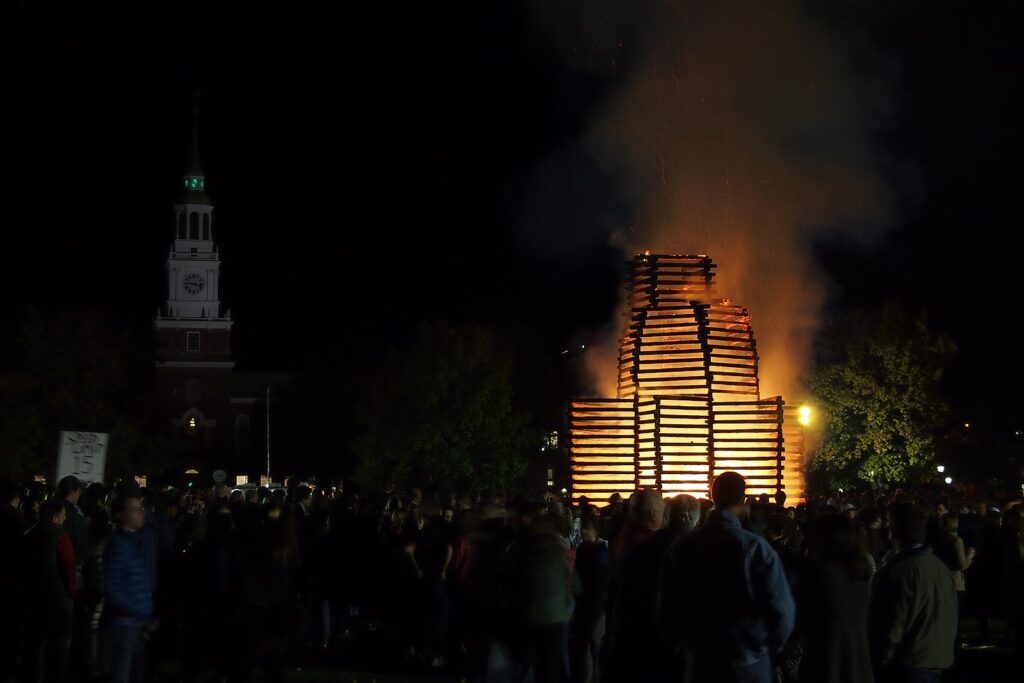
Of the three big weekends at Dartmouth, Homecoming is the one that is most tied to a sense of tradition. As all the alumni of yore descend on Hanover, the College recreates the pageantry and splendor as they pretend still to care about respecting their elders and those who tilled the ground they walk on. A big fire illuminates the Green, and as it blazes across the campus, one can still imagine a campus where respect and awe of the traditions handed down can move and motivate people toward greatness. While Homecoming has all the aesthetics of a Jingoistic revival, it is still all for show, a parade for a time that has passed and shall never return. Everyone looks upon it fondly, realizing that they are participating in a ritual greater than themselves, but if these acts ever came to life, if these traditions ever demand anything of them, they would run away much faster than how they do around the great fire.
As my time at Dartmouth has proceeded and the awe of first arriving on campus has warred down, I have slowly and painfully realized that Homecoming and all the traditions the College promotes are all for show. A giant production where we all play our parts and wear our costumes as we hope to participate in something greater than ourselves, yet we are never prepared to make any real sacrifices or bend to the beckonings of something greater than ourselves. Maybe I was naïve, or maybe I am now jaded, but I no longer share the affinity for what I once saw the ceremonies as.
Now, the weekend is a great time to catch up with recent graduates and to share a kinship with older ones, but beyond these reunions, I do not believe that the weekend contains more. Freshmen, I still encourage you to try to enjoy the bonfire, even if I am rather down on it. The fires and ceremonies can be quite exhilarating in the moment, but I caution against placing your faith in such ephemeral rituals. Perhaps this is why I am so jaded, a lover-scorned, a once proud confessor of the traditions now seeing them for the shams that they are. Much easier to see through them in the beginning than to invest any belief in their power.
A ghost dance where we all wear our green face paint and Big D face tattoos and prance around the fire, pretending that the traditions have not failed, Homecoming is. While I wish that the ceremonies still connected us to a sacred past and attached us to the memories of our great predecessors, I know that the College which controls the fire has no care for this past, and if we continue to believe that the ceremonies have the potential to unite a fire to return to this past, we are deeply misguided and placing faith in mere fairytales. Tradition is merely a skinsuit for the College, and we would be remiss if we believed that skin controlled one’s body.
No, those who support the College as it was configured for its first 200 years and the original values which it promoted must not fall for the manipulations of this show of false tradition, where the masks look so real, but the true intentions behind them are always hidden. These false ceremonies must be rejected, and a realization that the traditions have indeed failed long ago must be accepted. For if saving the traditions and the values of the College is one’s goal, one must be realistic that the College has abandoned these very things, and one must know that whatever show they put on, pretending they still care about these sacred rites, is simply that, a show.

Be the first to comment on "The Stage of Tradition"